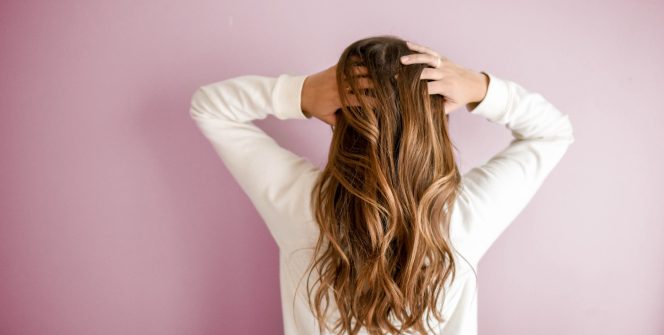As you get older, you’ll see your hair changing slowly, so it may need extra care as time goes on. For example, it’s likely that you will experience changes in colour and texture, since your hair follicles will start to shrink.
Other changes that you may observe include:
- hair thinning
- greying hair
- decrease in hair density
- less volume
- baldness
- too much hair
However, there is no need to get worried or stress, as you can try different techniques, that will support your hair and help you take great care of it. To learn how to maintain good-looking hair as you age, check out our suggestions below. Be sure to seek advice from a healthcare professional for more guidance.
Choose Quality Products
The types of products that you use on a daily basis can affect the way your hair looks, which means that it’s essential to look for quality brands. It’s best to find shampoos and conditioners, that are specifically formulated for your hair type. Moreover, as we age, our scalps start to produce less natural oil, which can lead to dryness and further damage. Therefore, you should ensure you use gentle products, that don’t contain any hormone-disrupting chemicals, such as parabens. In addition, when washing your hair, aim to use lukewarm water and avoid over-washing it.
Address Hair Loss
It’s possible that hair loss may occur as a natural part of the ageing process, but there are a few solutions that you may want to explore, such as looking for hair loss treatments or medications. At Oxford Online Pharmacy, you can learn more about hair loss treatments for men and women and find out how they can help you address hair loss. By following a specialised hair loss treatment plan, you can encourage the growth of new hair and strengthen the ones you already have. Treatments come in different forms, such as sprays, foams, shampoos, and tablets.
Get Regular Hair Trims
Regardless of your age, it’s crucial to get regular hair trims, as they can help you maintain healthy-looking hair for as long as possible. As time passes, your hair may become thinner and more prone to breakage. Also, it’s best to prevent split ends, which can make your hair look dull. Be sure to arrange regular visits at your hairdresser so that your hairstylist can remove any damaged or split ends. Moreover, they might be able to suggest some things that you can do to improve the overall appearance of your hair or even recommend specific products.
Eat A Healthy Diet
Another great way to look after your hair can be to nourish it from within, which means that it can be beneficial to start eating a simple and balanced diet. There are lots of vitamins and minerals, which can help promote hair health, so it’s important to be proactive with your nutrition.
For instance, consider adding protein-rich foods, including:
- fish and seafood
- eggs
- tofu
- chicken
- almonds
- cottage cheese
- yoghurt
- lentils
Your hair requires essential nutrients like folate, iron, vitamin A, and vitamin C, which are found in spinach and other leafy greens.
Protect Your Hair From Heat
Heat can cause damage to your hair, so it’s important to be mindful of the way you use heat-styling tools, such as blow dryers, flat irons, or curling wands. Although they can make your hair look better, they aren’t the best when it comes to promoting long-term hair health. So, it’s a good idea to reduce the frequency of use to give your hair the care it needs. Also, make sure you use a heat-protectant spray to protect your hair from damage. When you’re in the sun, wearing a wide-brimmed hat can help minimise the impact of UV rays.
Opt For Low-Maintenance Styling
Be sure to go for low-maintenance styling, which might be better for your hair in comparison to tight hairstyles, which tend to pull on the hairline and cause excessive damage. Styling your hair doesn’t have to be complicated, and you can find a variety of loose styles that will let your hair breathe. Also, you should be mindful of the types of hair accessories that you use. Always opt for soft hair ties and scrunchies; otherwise, they can cause hair breakage.
Double-Check Your Medications
Lastly, it’s important to learn more about the medications that you take for certain conditions. Some of them might be interfering with hair growth, so it’s best to speak to your doctor and double-check that they don’t have any negative side effects, such as hair loss. If possible, look for other types of medications or treatments that might be better for your hair health.
While it’s normal that natural changes will occur as you age, this doesn’t mean that you can’t maintain beautiful hair over time with the right products and haircare tips.

Leave a Reply